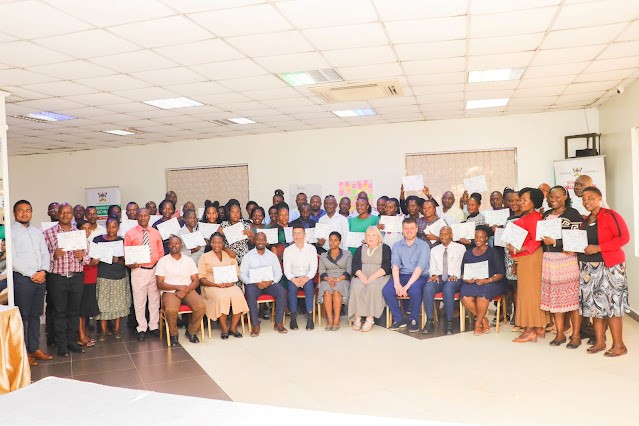More than 50 health managers from Wakiso District in Central Uganda obtained invaluable skills from a three-day transformative workshop training in leadership and management through a project titled “Strengthening leadership and management competencies among local government health managers in Wakiso District” in an effort to improve healthcare service delivery in Uganda.
An international partnership between Makerere University School of Public Health (MakSPH) and Nottingham Trent University (NTU) organized the training in collaboration with Uganda’s Ministry of Health (MOH), Wakiso District Local Government (WDLG), and Nottingham University Hospitals (NUH). This was based on a decade-long collaboration between NTU and Mak to enhance health service delivery in Wakiso District by generating evidence for successful policy, training, and community health outreach initiatives.
This seminar, held from June 11th to 13th, 2024 at Piato Restaurant in Kampala, followed a baseline assessment of leadership and management among local government health managers in Wakiso. The survey results revealed considerable gaps in leadership and management competencies among health managers, including personnel management, resource allocation and usage, budgeting, and accountability, among others.
Dr. Sarah Byakika, the Ministry of Health Commissioner for Planning, Financing, and Policy, addressed the participants and thanked the program partners and funders for their support of the initiative to strengthen the capacity of the district’s health managers, emphasizing that; “we (Uganda) may not be able to improve health service delivery unless we build capacity in leadership and management.”
“Selection of this programme for Wakiso is aimed at addressing challenges we identified, largely from our
health facilities’ quality of care assessments, support supervision, and performance analysis, where we felt something needed to be done in Wakiso,” Dr. Byakika explained.
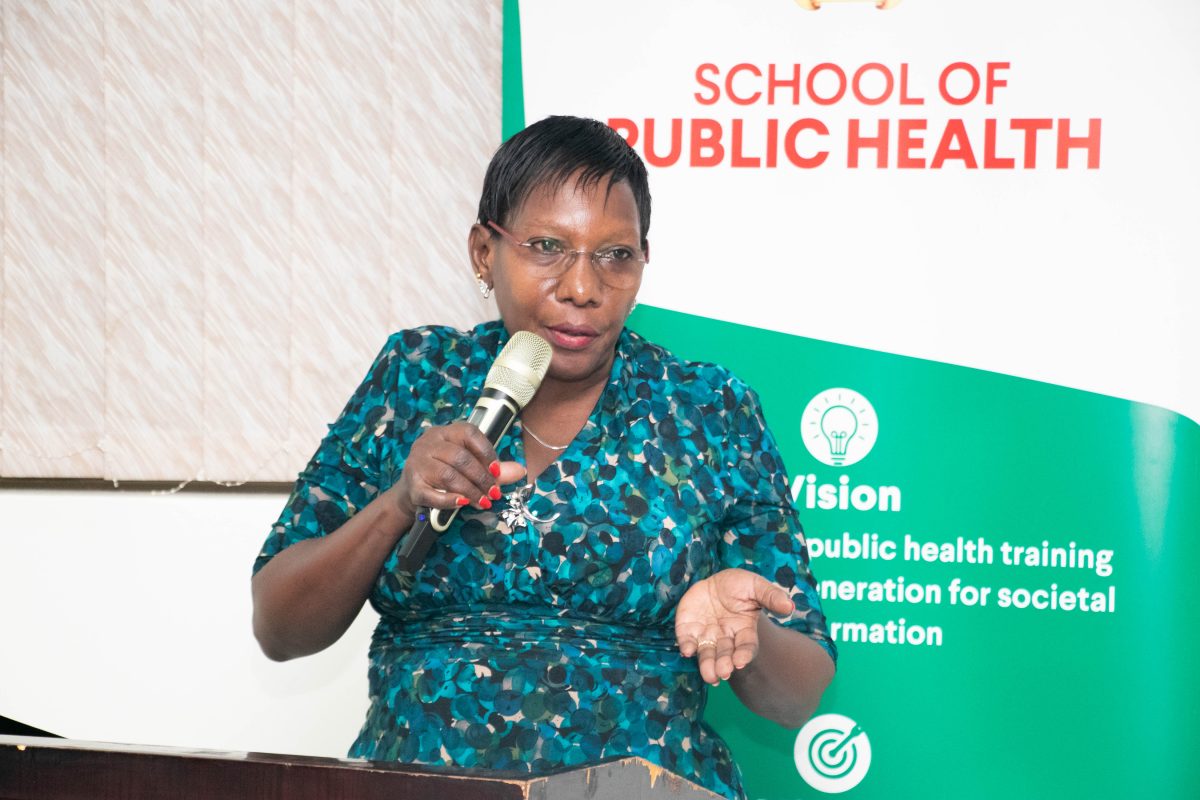
According to Dr. Byakika, supervisors in the district’s lower healthcare facilities face major challenges due to a lack of management and leadership skills. She noted that health officers are assigned supervisory duties with little regard for the skill sets required for this new function, a recurring pattern that has seen the best-performing clinical officers assume management responsibilities without proper training in their competencies.
Dr. Byakika confirms that many health facility in-charges have had to learn on the job after being promoted to manager status, yet balancing the skills gap with supervisory duties remains critical. She indicated that the government intends to incorporate leadership and management skills into clinical health worker training. She did, however, emphasize that the NTU-Mak joint training aimed to improve Wakiso’s performance in the national league table for health service delivery.
Dr. Sheba Gitta, the Country Director for THET in Uganda, expressed her enthusiasm for the NTU-Mak partnership, emphasizing the value of global learning opportunities provided by the collaborative project: “Through the NHS England-supported programme, we are committed to facilitating global partnerships that develop stronger health systems. This cooperation, which began in 2012, has received many of our funds not only because they produce outstanding work, but also because the people with whom they collaborate do excellent work.”
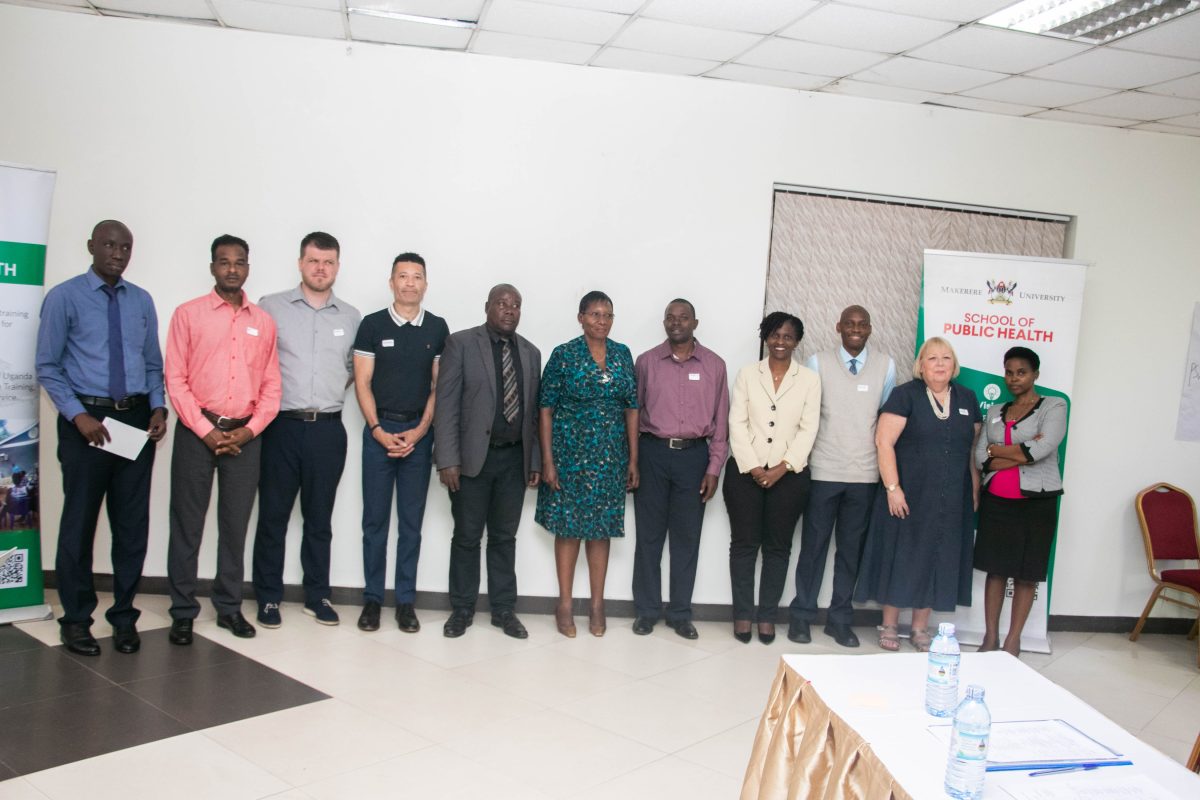
This three-day workshop addressed critical leadership and management practical skills among health managers such as visionary thinking, strategic planning, effective communication, financial management and accountability, effective use of data for management and decision-making, conflict management and resolution, gender and social inclusion, computer literacy, and team building through interactive sessions with facilitators from different disciplines and professions. Facilitators comprised a UK volunteer team from NUH and NTU, MOH and WDLG officials, and MakSPH academics. Following the workshop, the trained managers will be offered a six-month hybrid leadership and management fellowship, as well as follow-up visits to their sites.
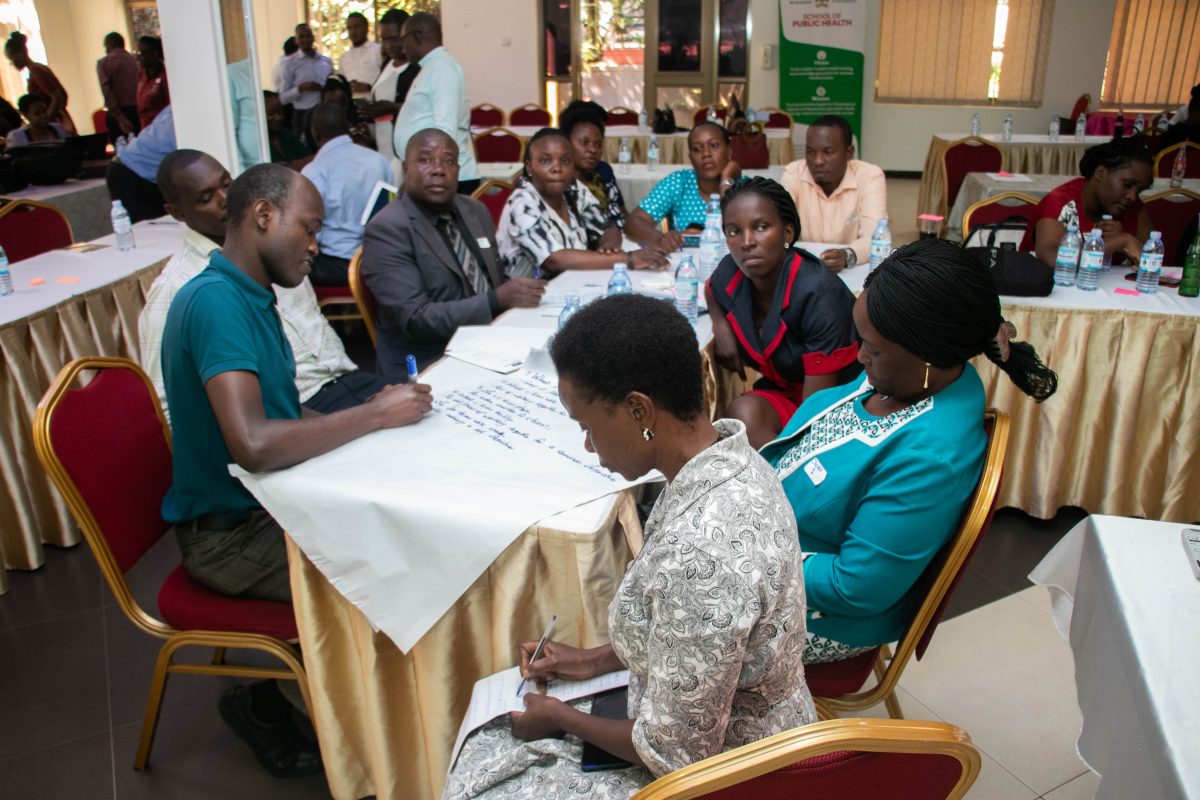
The course also instilled confidence in the participants to efficiently manage their health facilities and lead their staff. Mathias Sserwanga, the manager of Namulonge Health Centre III in Nansana Municipality, who sees over 900 patients monthly, said the training improved his skills and he hoped to apply them in communicating effectively with his subordinates, making decisions, managing conflicts, and improving performance management at his facility.
The training also helped Ms. Nulu Naiga, the in-charge of Zzinga Health Centre II, reflect on her day-to-day duties. She manages 10 staff members who serve two island parishes of Balabala and Zzinga in Bussi Sub County. She aims to use the next fellowship to strengthen her working relationships with her colleagues and provide better services to the community.
Prof. Linda Gibson of NTU in the United Kingdom and Dr. David Musoke of MakSPH in Uganda, the leaders of the NTU-Mak Partnership, have stated that they intend to leverage learnings from the educational program and fellowship to give evidence for policy and an early example for scalable efforts to strengthen Uganda’s healthcare system.
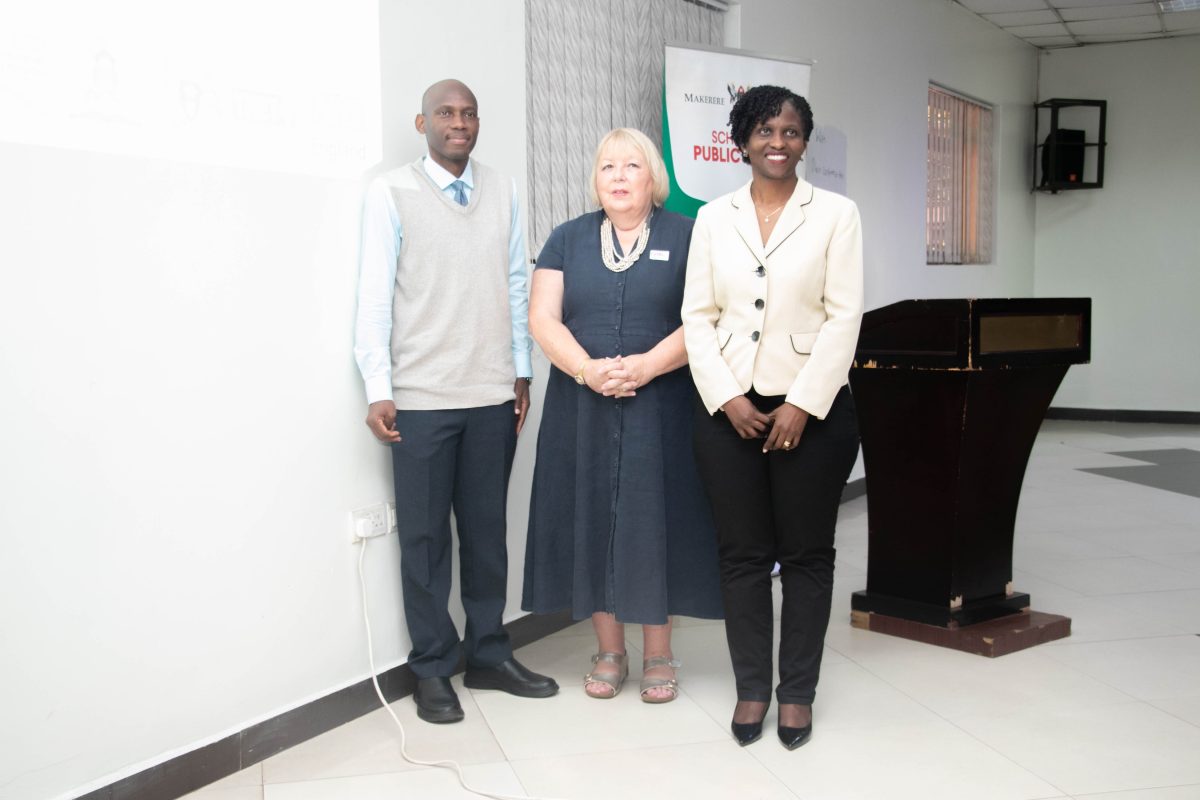
This project is part of the Global Capacity Building Programme (GCB), which is financed by the National Health Service England and sponsored by the Tropical Health and Education Trust (THET).
Compiled by:
John Okeya – Assistant Communications Officer, MakSPH
Allan Ssembuusi – Project Coordinator, THET Leadership Project


